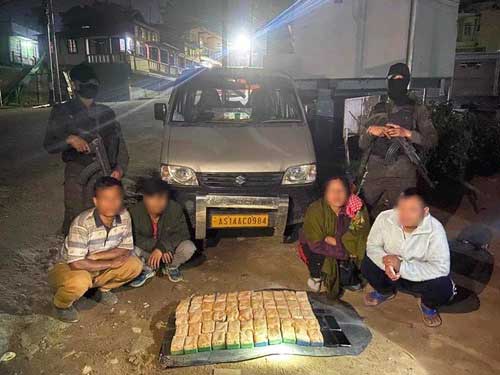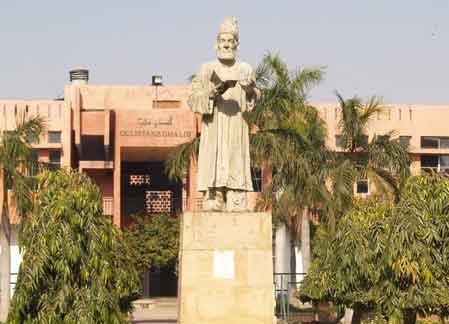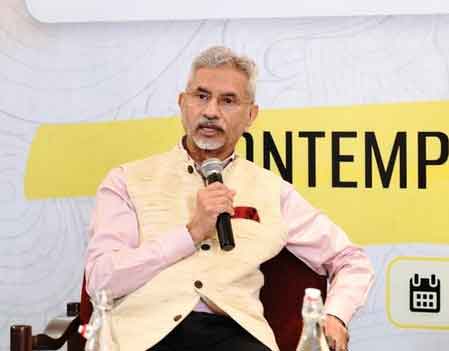In a daring journey that began in early December, a covert mission traced the perilous route of "organic ganja (cannabis)" from the lush landscapes of Thailand to the heart of Delhi.
Starting its journey in Phuket, this contraband skillfully navigates the hidden pathways of Southeast Asia, evading authorities and making its way towards India.
Once it reaches the Golden Triangle on India's northeast border that shares boundaries with Laos, Myanmar, and Thailand; it begins it journey into the country through Manipur and Dimapur in Nagaland.
It travels from the lush northeastern landscapes to the bustling cities of the country, particularly Delhi by train, bus, private vehicles and private delivery apps and services.
It also exploits social media that has been transformed into a rendezvous point for traffickers and clients, further entrenching the virtual roots of this clandestine network.
DLF Capital Greens in Moti Nagar emerged as the epicentre for this clandestine operation, seamlessly blending connections from the northeast with the national Capital’s urban landscape.
Upon interrogation of Nongmaitham Jashobanta Singh and Thiyam Rabikanta Singh, the masterminds behind the drug operation, additional information surfaced, shedding light on the intricate orchestration of supply chains and syndicates.
“Rudransh Gupta, one of the accused in the illicit drug activities, detailed a collaboration wherein ganja was clandestinely transported from Manipur to Delhi through covert messengers, using delivery services as inconspicuous carriers,” revealed, Special Commissioner of Police (Crime), Ravindra Singh Yadav, emphasising their involvement in supplying contrabands to students in the city and its outskirts.
An official told IANS that drugs being smuggled from the Golden Triangle are coming to Delhi in huge quantities and several people have been caught for their involvement in supplying the contraband from Northeastern states in the city.
Seizures surge: Delhi Police's war on drugs
Delhi Police’s data for the first quarter of the year exposes a chilling reality with over 20 kg of heroin and 800 kg of ganja seized during that period which was worth several crores in the illegal drug market.
Since January, the police seized around 20 kg of heroin/smack, 15 kg of cocaine, 800 kg of ganja, and 125 kg of opium in various operations across Delhi.
NCB's alarming report: Sea routes fuel 70 per cent of illegal drug influx
The annual report by the Narcotics Control Bureau (NCB) in 2022 revealed that about 70 per cent of the total illegal drugs smuggled into India come through the Arabian Sea and the Bay of Bengal, posing a significant challenge for law enforcement agencies.
Golden Triangle's grip: Myanmar's illicit trade dominance unveiled
The Golden Triangle on India's northeast border, shares boundaries with Laos, Myanmar, and Thailand, proving to be a hotbed for drug trafficking. Myanmar, the world's second-largest illicit supplier of morphine and heroin, contributes to 80 per cent of the global heroin supply, smuggled into the US, UK, China, and India via sea routes and other covert paths.
“Guwahati and Dimapur have become hotspots for significant heroin seizures, originating from the Golden Triangle. Myanmar's heroin and meth infiltrate India at two key entry points: Moreh in Manipur and Champhai in Mizoram,” a senior police officer told IANS.
Dark web's influence: A modern twist to an age-old trade
In a fascinating turn, precursor chemicals like ephedrine, acetic anhydride, and pseudoephedrine are sourced from South India, transported to Kolkata and Guwahati via Delhi, and then smuggled across the border to Myanmar, exploiting domestic security gaps.
Indian authorities have ramped up efforts to curb drug trafficking in the region, with a Memorandum of Understanding signed between the governments of India and Myanmar in 2020.
The NCB's 2022 report identifies heroin as the most trafficked drug through the sea route, with ATS, marijuana, cocaine, and others also falling into the net of law enforcement authorities.
Syndicates have adapted, using couriers, parcels, and postal services to smuggle and deliver drugs, directly linked to the surge in dark web activity in India. The quantity of drugs in parcels is limited to a few grams to avoid suspicion and interception by law enforcement agencies.
Ongoing battle: Multi-pronged approach needed, says expert!
Efforts to combat drug trafficking have been ongoing for years, with the Indian Government and international organisations collaborating to disrupt drug trafficking networks. Measures include drug interdiction operations, improving border security, and providing drug treatment and rehabilitation services.
Yet, despite these efforts, the drug trade in these regions continues to thrive, with traffickers being privy to law enforcement strategies and finding new methods to smuggle drugs.
“There is a need for a multi-pronged approach that not only focuses on law enforcement but also addresses the underlying social and economic factors that contribute to drug production and trafficking,” emphasises Gurmeet Nehra, a research scholar at the Indian Law Institute.






After JNU, Jamia suspends MoUs with institutions in Turkey over support to Pakistan
Several prominent Indian universities have suspended their academic Memorandums of Understanding (MoUs) with institutions in Turkey, citing national security concerns.
India revokes security clearance of Turkey’s Celebi Airport Services
The government on Thursday revoked the security clearance for Turkish ground-handling firm Celebi Airport Services at the Indian airports, as calls grew to ban Turkish businesses in the wake of their country supporting Pakistan which harbours terrorism.
Indus Treaty on hold until Pakistan 'credibly and irrevocably' abjures support for cross-border terrorism
External Affairs Minister (EAM) S. Jaishankar on Thursday made it clear that the Indus Waters Treaty (IWT) will remain suspended until Pakistan stops sheltering internationally designated terrorist entities and individuals who are also engaged in cross-border terrorism against India.
Our relations, our dealings with Pakistan will be strictly bilateral: EAM Jaishankar
Making India's longstanding position clear once again, External Affairs Minister (EAM) S. Jaishankar on Thursday said that any issues pertaining to Pakistan will be dealt with Islamabad bilaterally.
Three Jaish terrorists killed in J&K encounter
Three terrorists of the Jaish-e-Mohammad (JeM) were killed on Thursday in a gunfight with the security forces in Nader village of Jammu and Kashmir's Pulwama district.
Assam Rifles kill 10 militants in fierce gunbattle in Manipur; operation underway
In a major counter-insurgency operation, at least 10 militants were killed during a fierce encounter with the Assam Rifles in Manipur's Chandel district, as security forces continue their intensified crackdown on insurgent groups across the state.
Top BSF official emphasises need for heightened vigilance on Indo-B’desh border
A Border Security Force (BSF) spokesman said that Agrawal, a senior IPS officer, underlined the maximum vigil along the India-Bangladesh border to ensure a prompt and effective response to any adverse situation.
Oil India Limited begins gas exploration work in Tripura
In a significant development, the state-owned Oil India Limited (OIL) commenced its exploration and production activities in Tripura by spudding its well at Debtamura in Tripura’s Gomati district, officials said here on Wednesday.